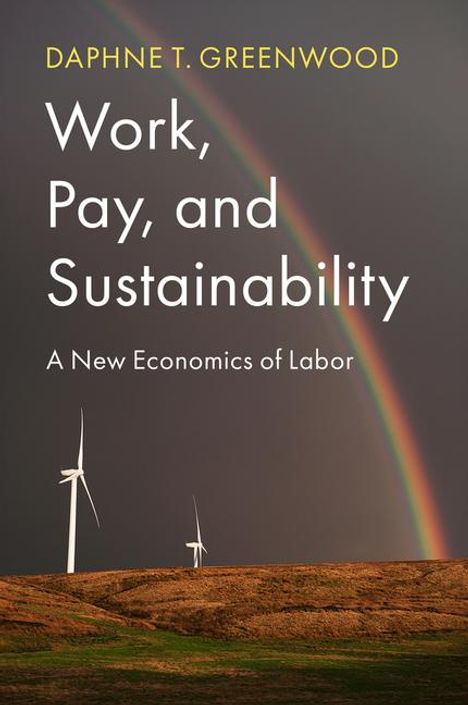Daphne T Greenwood: Work, Pay, and Sustainability, Gebunden
Work, Pay, and Sustainability
- A New Economics of Labor
(soweit verfügbar beim Lieferanten)
- Verlag:
- Polity Press, 03/2025
- Einband:
- Gebunden
- Sprache:
- Englisch
- ISBN-13:
- 9781509536740
- Artikelnummer:
- 11879452
- Umfang:
- 320 Seiten
- Gewicht:
- 584 g
- Maße:
- 236 x 158 mm
- Stärke:
- 31 mm
- Erscheinungstermin:
- 11.3.2025
- Hinweis
-
Achtung: Artikel ist nicht in deutscher Sprache!
Weitere Ausgaben von Work, Pay, and Sustainability |
Preis |
|---|---|
| Buch, Kartoniert / Broschiert, Englisch | EUR 32,20* |
Klappentext
Daphne Greenwood presents the first comprehensive introduction to pluralist labor economics. She expands the economics toolbox with theories taken from institutionalist, feminist, social, ecological, and stratification economists. Pluralists, she explains, focus on how formal and informal institutions affect the distribution of productivity dividends-and how this has evolved over time. Pluralists are concerned with job quality as well as financial compensation. They acknowledge the modern-day abundance created by technology, but advocate for institutional changes to direct it in equitable and sustainable ways.
Building on the work of many heterodox economists, Greenwood introduces wage and employment models that are embedded in the economy, environment, and society. Beginning with evidence on work and pay in the US today, she explains why tools for analyzing commodity exchange are not sufficient for analyzing labor relationships. She brings bargaining power to the fore, analyses dynamic monopsony, and looks at the role of wealth as well as income in framing opportunities. Throughout the book, Greenwood addresses threats to sustainability and equity from unpaid social costs; institutional changes such as financialization and fissured workplaces; as well as race-ethnicity and gender. Among the possibilities explored for improving work and pay are sectoral bargaining, job guarantees, worker-owned cooperatives, and universal basic income.
The first undergraduate-friendly book on its topic, Work, Pay and Sustainability is an important resource for students and scholars alike.

